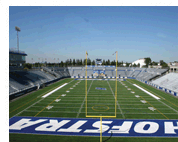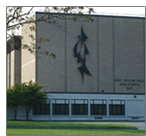America’s First Sports Spectacle – Part II
Jun 16, 2020Posted by james
Just a few weeks ago, I teased you with some background about our country’s first sports spectacle. If you haven’t determined yet which event is associated with this designation, I won’t continue the suspense. The event was a horse race, and here’s the rest of the story.
During 1822, a braggart plantation owner dared the owners of Eclipse, an undefeated Northern thoroughbred, to race against Sir Charles, the fastest horse in Virginia, at the National Course in Washington. Before a mostly Southern crowd, Sir Charles pulled up lame a half mile before the finish line. Visiting New Yorkers hurled taunts and insults at the stunned Southern fans.
One man in the crowd called for a rematch. William Ransom Johnson, a renowned horse owner and trainer from North Carolina, offered an amazing proposal – a North-South race at the new Union Course in Jamaica, New York. Eclipse would run against a Southern horse to be named on the day of the race. The purse was stunning for the times: $40,000.
The offer was a trap. Johnson, who was known as the Napoleon of the Turf, stacked the deck in his favor. He felt that Eclipse was not the best horse in America. Southern horse breeders and trainers such as himself always had dominated racing. He believed the North was known for inferior horses and that it did not have the same passion for horse racing as the South.
During the months before the great match race, Johnson scouted the best horses in the South and he trained multiple candidates leading up to the May 27, 1823 race day. He selected Sir Henry. Johnson anticipated a dream win.
Meanwhile, Eclipse’s trainer, Cornelius Van Ranst (known as “the old wizard”), was worried about his horse. Eclipse was eight years old. Deciding to inject some youth on his side, Van Ranst replaced Eclipse’s jockey, veteran winner Samuel Purdy, with an untested youngster.
On race day, 60,000 spectators, a third of them having made the long journey from the South, packed the Union Course grounds and stands. The stock exchange closed. Congress shut down. Andrew Jackson took time off from his presidential campaign to attend the race. Betting reached new heights. Some Southerners wagered their estates.
At the time, horses raced in heats, with the first to win two heats declared the winner. The distances were nothing compared to our Triple Crown races of today. Eclipse and Sir Henry would race four miles, rest for a half-hour and go right back to the racing oval for a second race. A third race, if it was needed, would declare a winner.
Eclipse and Sir Henry split the first two heats by narrow margins. For the final heat, Eclipse’s owners summoned the veteran Purdy from the crowd and begged him to take over for their inexperienced jockey. Purdy, who came to the track dressed in his racing silks, hopped aboard Eclipse.
Two exhausted but determined horses, neither of which ever had found it necessary to race a third heat, fought every furlong of the final four-mile race. At the finish line, Eclipse and Purdy brought home the prize for the North, proving that older and wiser, at least in a horse race that history recognizes as America’s First Sports Spectacle, can be a winning combination.









